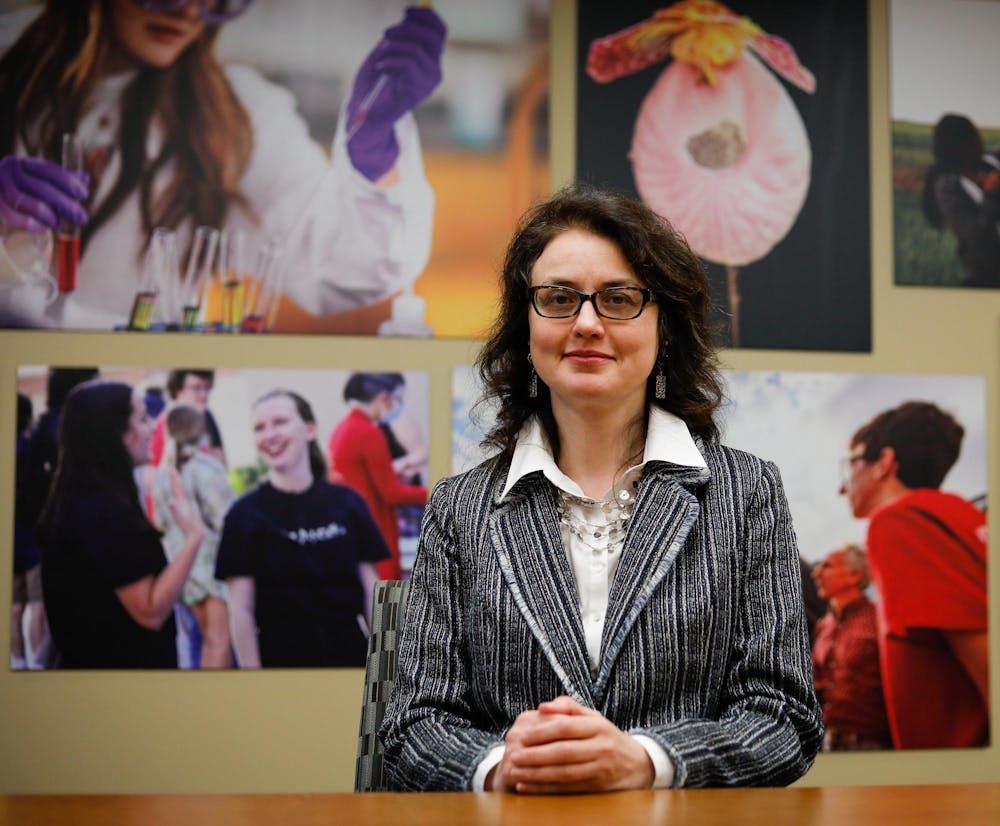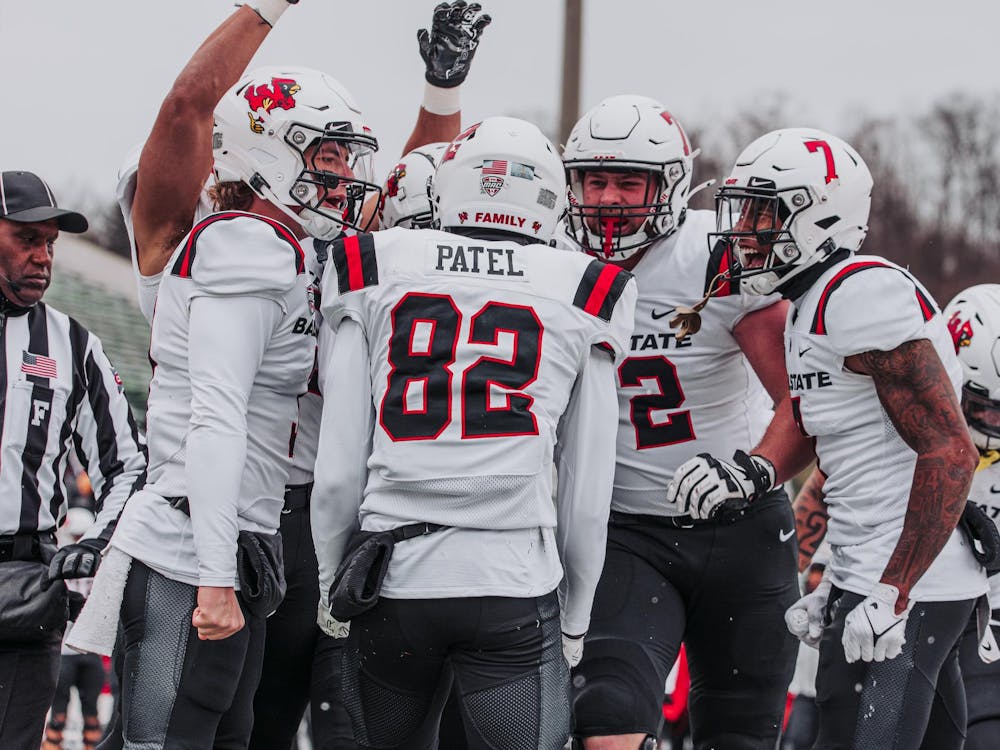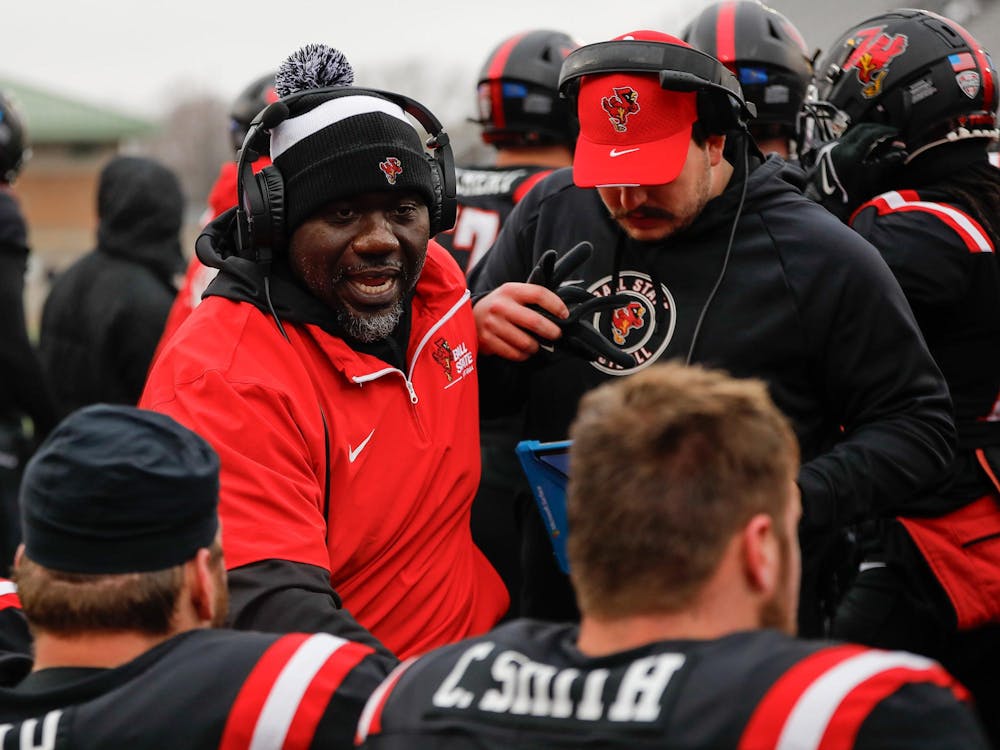Weather and environmental circumstances are among the most common topics of small talk, according to Harvard Business Review. However, as Hurricanes Helene and Milton leave people in the U.S. southeast region devastated, weather and climate disasters have become topics of bigger conversation.
Jill Coleman, associate dean of sciences and humanities and professor of geography and meteorology at Ball State University, first began studying weather as an undergraduate.
“My passion led to figuring out the oddities of climate patterns in the world,” she said.
The same “oddities” that gave Coleman a passion gave Ball State University geography professor Dave Call “childhood trauma” when a hailstorm hit his Pennsylvania home at a young age.
“A surprising amount of people [who] are meteorologists are actually weather-phobic,” Call said.“ They were scared of the weather, [so] they started learning about it to conquer their fear, and then they discovered they really liked it.”
Call followed this path, which was nurtured by his mother, a science teacher. He now storm chases with students — albeit “safely” — as part of his curriculum.
This fall, Hurricanes Helene and Milton made national news as the two natural disasters formed eleven days apart, according to the National Aeronautics and Space Administration (NASA)’s global precipitation measurement. Milton became “one of the most intense hurricanes on record in the Atlantic basin,” according to climate.gov, and Hurricane Helene’s death toll surpassed 200 in early Oct., according to the Associated Press.
Coleman, who takes a special interest in hurricanes and long-term weather patterns as a climatologist, honed in on the specificities of hurricane formation.
She said although it’s still early to tell the severity patterns of hurricanes and thunderstorms, and their correlation to climate change due to a lack of data, it is clear that hurricanes have become stronger and are lasting longer. This is due to the rapid warming of oceanic temperatures, which has caused the extension of hurricane season in the North Atlantic region.
Citing from research she co-authored that was published in Jan. 2017 by the American Meteorological Society, she said a similar adage rings true when looking at snowfall fluctuations in the Midwest, as the region has warmer temperatures in the wintertime with fewer inches of snow accumulation than in previous years.
“Snow on the ground is going to be typical [year round]. We're going to still have that happen with climate change,” she said. “The difference is, what is the intensity of our snowfall going to be like? Is it changing in terms of patterns?”
The National Library of Medicine (NLM) reported “a stunning gap” in 2019 between the environmentally damning risks of climate change and the actions being taken by the public to mitigate and prevent such risks.
“Over the last decade, while democrats, independents, and even liberal-to-moderate republicans, have increasingly accepted global warming is happening and that it is worrisome, conservative republicans have become less likely to see climate change as real and a cause for worry,” which has made the climate change phenomenon a debate that is “strongest in the US,” according to the NLM.
Coleman countered the term “global warming,” calling it “a misnomer,” and drawing attention to the fact that the term implies that everywhere in the world is warming, but in reality, “there's actually some places in the world [where] we see slight cooling.”

She also argued that while the issue of climate change has become so politically polarizing, it shouldn’t be.
“It should be an issue that is independent of political parties. It’s science,” Coleman said, adding that a likely cause of the issue’s polarization is general public misunderstanding. “Climatologists are not the greatest spokespeople. We take a lot of statistical, scientific information for granted, and it doesn’t take much for people to spin that information.”
Such polarization and spinning of information has created a cause for concern over what climate change is. Call encouraged students to make their voices heard via political involvement.
“It is a policy debate wearing the costume of a scientific debate,” Call said. “From a scientific standpoint, it's pretty clear that the planet's warming and it's going to affect the weather. The discussion isn’t about the science, it's about the policy,” he said.
Where policies are concerned, Coleman said economics are at play, as the United States is notorious for its fossil fuel expenditure.
According to the U.S. Energy Information Administration, fossil fuels are the leading energy source in the nation, accounting for 83 percent of its energy consumption in 2023.
“There are very powerful companies, corporations and others that don't want policy changes to be put in place,” Call said. “It’s much easier to attack science.”
While Coleman focused more on the environmental metrics of the issue rather than overall policy, she agreed that a lot of the turmoil surrounding climate change stems from a physiological block among the population to accept change.
“The vast majority of climatologists and scientists are all in agreement that there is climate change occurring,” she said. “It is happening at a much more rapid pace than we have ever seen. We've had climate change happen in the past, in the Jurassic [period], but the difference is, that happened at [a] millions-of-years timescale. This is happening on decades, centuries-timescale. We definitely have an anthropogenic, human influence on climate change.”
The human capacity to create change coincides with the ability to influence. Coleman said there are lots of habitual actions one could take toward sustainability and reducing their carbon footprint, like bicycling or walking to a destination instead of driving.
“Adopting habits collectively, in mass, will make [them] seem more commonplace,” she said, underscoring the traction of technological advancements in society over the last decade.
Despite the seeming mundaneness of weather, Coleman said that’s what draws her to it and why she loves teaching the one-in-a-million “weather nerds” who remind her why everyone should be mindful of the state of the planet's environment.
“It is a topic that unites us,” she said. “We all experience weather every day. … [Through] teaching meteorology, I found a whole new passion.”
Contact Katherine Hill via email at katherine.hill@bsu.edu.





